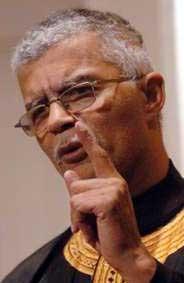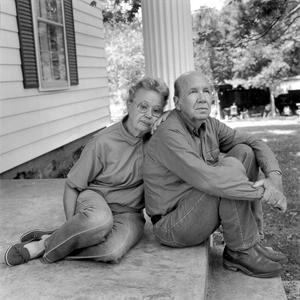
Chockwe Lumumba

Will Campbell

Paul Alexander
By Alan Bean
Three Mississippi stories grabbed my attention this week. Will Campbell, the white civil rights activist and renegade Baptist preacher from Mississippi, died this week after a long and painful decline. Chockwe Lumumba, the erstwhile Black nationalist attorney, was elected as mayor of Jackson, Mississippi. Finally, Paul Alexander, the former TIME reporter who has written for The New York Times, the Nation, Salon, the Daily Beast, Paris Match and the Guardian, will soon be releasing Mistried an eBook on the bizarre railroading of Curtis Flowers in Winona, Mississippi.
Taken together, these stories capture the rich contradictions of the Magnolia State. Campbell and Lumumba represent opposite poles of the civil rights movement. Lumumba ran for mayor of Jackson as a centrist candidate who cares about economic development and job creation as much as civil rights; but there was a time when the lawyer-politician was so disillusioned with White America that he advocated the creation of a separate, predominantly Black, nation in the Southeastern United States.
Campbell, by contrast, insisted that God’s grace was offered to the Klansman as well as the oppressed. ”Mr. Jesus died for the bigots as well,” he famously said. Acting on this belief, Campbell regularly engaged with violent white segregationists over a glass of whiskey.
I suspect Chockwe Lumumba and Will Campbell were dealing with the severe trauma of the civil rights struggle in equal and opposite ways. Campbell couldn’t disown the white culture that helped make him who he was. He realized that these people, for all their ghastly flaws, could be kind and loving as well as vicious.
Lumumba, by contrast, had been so deeply scarred by America’s tragic racial history that complete renunciation of all things White seemed the only option. Both men were doing what they needed to do to hold onto their sanity.
There is something miraculous about a Black nationalist activist evolving into a mainstream American politician. Lumumba calls himself a Fannie Lou Hamer Democrat–an apt description, I think. Fannie Lou Hamer rejoiced in the presence of white supporters like the Rev. Ed King and took a strong stand against Black activists who refused to work with white people.
I first encountered Chockwe Lumumba’s name while reading through the transcript of Curtis Flowers’ second trial in Gulfport, Mississippi. The year was 1999 and Lumumba had not yet made a full re-entry into mainstream America. The blatant bigotry involved in the weird mis-investigation in the Flowers case got under his skin to such an extent that Lumumba informed the jurors that they were blinded by racism. But his aggressive cross-examination of state witnesses led to some startling developments. One old black man shifted his story on the stand, admitting that he went along with the state’s narrative at the first trial because he feared retaliation.
Does Lumumba’s election success indicate that Jackson, Mississippi has renounced its legacy as the capital of never-in-a-thousand-years opposition to civil rights? Yes and no. Few politicians today would sink to the gross racial pandering that was so common in the 1950s and 1960s–it would be politically suicidal. But white flight has reshaped the city. Whites now comprise only 18.4% of Jackson’s population, making it difficult for white politicians to compete effectively. Lumumba’s Black nationalist credentials would probably make him unelectable in any Mississippi community with a sizable white population; but even moderate African Americans sympathize with the rigid position staked out by the Black Nationalists decades ago even if they disagreed with this approach.
Mississippi has changed, but not nearly enough. Just read Paul Alexander’s engaging rendering of the Curtis Flowers story and you’ll know what I mean. Alexander grew up in Birmingham, Alabama in the 1950s and 60s and he understands the region as only a native can. His contempt for the southern racism that marred his childhood is visceral and his attitude to white racists is much closer to Lumumba’s than to Campbell’s. Alexander knows how small town southern whites think and feel–he was raised in the culture. You won’t find a lot of polemical posturing in Mistried, Alexander’s eBook that will be published next week, but Paul Alexander captures the racial dynamics of Winona, Mississippi with poise and precision.
I will have more to say about Paul Alexander’s eBook when it is released next week. In the meantime, let’s raise a glass of champagne to the mayor elect of Jackson, Mississippi and a glass of whiskey to Brother Will Campbell as he amuses and disconcerts the angels.
